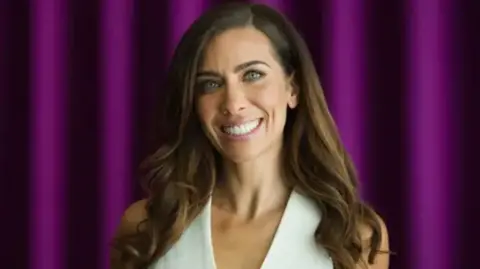YouTube content creators contributed £2.2bn to UK economy in 2024
14 minutes agoZoe KleinmanTechnology editor

 Emma Lynch/BBC
Emma Lynch/BBCYouTube content creators contributed £2.2bn to the UK economy in 2024 and supported 45,000 jobs, according to an impact report carried out by Oxford Economics.
It comes as an all-party parliamentary group is launched to represent UK creators and influencers.
Its co-chair Feryal Clark, Labour MP for Enfield North, described them as “trailblazers of a new creative revolution” who had been “undervalued in Westminster for too long”.
British content creator Lilly Sabri – who has nearly six and half million followers on the platform, where she posts fitness videos – welcomed the research and the creation of the parliamentary group.
“For many years people have questioned whether being a content creator is a real job, and whether you can actually build a sustainable career from it,” she told the BBC.
While all-party parliamentary groups are informal and have no official power, with around 500 of them representing various sectors and interests, they are able to provide industry insights directly to policy-makers.
For many content creators and influencers, the new group is a symbol of long-overdue recognition for their work.
They say the challenges they face include access to training and funding opportunities, finding suitable studio spaces, and acquiring film permits.
“This new cross-party forum will put that right: tearing down the barriers that stifle talent, championing creators as pioneers of our time, and making sure Britain leads the world as the ultimate home of creativity, innovation and ambition,” Ms Clark said.
Ms Sabri stressed she was also a qualified professional but told BBC news streaming had been central to her career.
“I started as a content creator on YouTube eight years ago, launched my first business around three years ago and my second shortly after.
“Even though my physiotherapy degree is an integral part of what I do, without YouTube I wouldn’t be where I am today and I wouldn’t have launched these businesses and employed as many people as I do.”
This is not the first sign that streamers and influencers are entering the political mainstream.
This summer Prime Minister Sir Keir Starmer invited 90 influencers to a reception at 10 Downing Street, and in the US the White House has opened up its press briefings to include content creators and influencers alongside traditional journalists.


Sign up for our Tech Decoded newsletter to follow the world’s top tech stories and trends. Outside the UK? Sign up here.